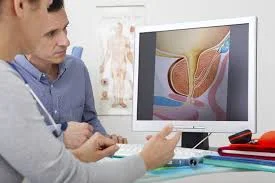
Benign Prostatic Hyperplasia (BPH), commonly referred to as an enlarged prostate, is a non-cancerous enlargement of the prostate gland, which is located just below the bladder in men. As the prostate grows, it can press against the urethra (the tube that carries urine from the bladder out of the body), leading to urinary problems. BPH is common in older men, especially after the age of 50.
Homeopathy focuses on treating BPH by addressing the symptoms and the root cause of the problem. The remedies are chosen based on the individual's symptoms, constitution, and overall health.
Sabal Serrulata: One of the most common remedies for BPH, especially when there is frequent urge to urinate, difficulty starting the flow of urine, and a feeling of incomplete emptying. It is also helpful for men with dribbling or involuntary urination.
Conium Maculatum: Used when there is difficulty in passing urine, especially for older men who have slow, interrupted urine flow and feel that the bladder is not fully emptied.
Baryta Carbonica: Prescribed for elderly men with BPH, particularly when there is frequent urination, dribbling, and difficulty starting urination. It is also used for individuals with prostate enlargement and a history of mental and physical weakness.
Chimaphila Umbellata: Indicated for men who experience urinary retention, pain, or difficulty passing urine. It is particularly useful when there is a sensation of a ball in the perineum (the area between the anus and the scrotum).
Thuja Occidentalis: Helpful for men with an enlarged prostate and frequent urination, especially if the urine is scanty and the stream is weak. It is often used when there are associated urinary tract infections.
Staphysagria: Effective for men who experience irritation and burning pain during urination. It is also beneficial for individuals with a history of prostate inflammation or emotional stress related to BPH.
Lycopodium Clavatum: Indicated when there is frequent urination, particularly at night, with difficulty starting the stream. It is used for individuals with digestive issues and anxiety as well.
It is important to consult a qualified homeopath or healthcare provider to get a proper diagnosis and personalized treatment for BPH. Severe cases may require medical intervention, so monitoring symptoms and working with a doctor is essential.
Mr. Sandeep Kumar is a qualified homeopath registered with AROH (Australian Register of Homeopaths). Our website does not advise using any prevalent homeopathic medications through online homeopathic portals including S.K. Homeopathy without prescription or dispensing by a qualified practitioner. This website's content does not substitute for direct, personal, professional medical care and diagnosis.